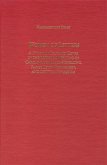Short description/annotation
First book-length treatment of the famous German feminist and writer.
Main description
Lily Braun, born to a prominent aristocratic family in 1865, became one of the leading German feminists of the late 19th and early 20th centuries and a very successful writer, both of feminist political tracts and of novelistic works. She played a leadership role in German feminism with such groups as the Verein Frauenwohl (Association for Women's Well-Being) and the Social Democratic Party; her efforts included lobbying for the establishment of maternity insurance and better education and housing for women. Despite her energetic activism, she came into increasing conflict with other leading socialist women -- most notably Clara Zetkin -- who were suspicious of her aristocratic origins and her relatively bourgeois brand of socialism. This led her to retreat from politics and pursue a longtime interest in writing with works such as the fictionalized account of her grandmother's life in Goethe's Weimar, Im Schatten der Titanen (In the Shadow of the Titans) and the later, thinly fictionalized Memoiren einer Sozialistin (Memoirs of a Socialist), based on her own life. Startlingly, by 1914 Braun was espousing nationalistic ideas that would later be taken up by the National Socialists, and had repudiated many of her long-held feminist stances. She was no longer a pacifist, and her 'feminism' now encompassed racial hygiene. Lischke provides a view of both the political and the literary sides of this enigmatic figure, as well as views of the German feminism and literary trends of the period.Ute Lischke is professor of German and co-ordinator of International Studies Programs at the University of Toronto.
First book-length treatment of the famous German feminist and writer.
Main description
Lily Braun, born to a prominent aristocratic family in 1865, became one of the leading German feminists of the late 19th and early 20th centuries and a very successful writer, both of feminist political tracts and of novelistic works. She played a leadership role in German feminism with such groups as the Verein Frauenwohl (Association for Women's Well-Being) and the Social Democratic Party; her efforts included lobbying for the establishment of maternity insurance and better education and housing for women. Despite her energetic activism, she came into increasing conflict with other leading socialist women -- most notably Clara Zetkin -- who were suspicious of her aristocratic origins and her relatively bourgeois brand of socialism. This led her to retreat from politics and pursue a longtime interest in writing with works such as the fictionalized account of her grandmother's life in Goethe's Weimar, Im Schatten der Titanen (In the Shadow of the Titans) and the later, thinly fictionalized Memoiren einer Sozialistin (Memoirs of a Socialist), based on her own life. Startlingly, by 1914 Braun was espousing nationalistic ideas that would later be taken up by the National Socialists, and had repudiated many of her long-held feminist stances. She was no longer a pacifist, and her 'feminism' now encompassed racial hygiene. Lischke provides a view of both the political and the literary sides of this enigmatic figure, as well as views of the German feminism and literary trends of the period.Ute Lischke is professor of German and co-ordinator of International Studies Programs at the University of Toronto.








